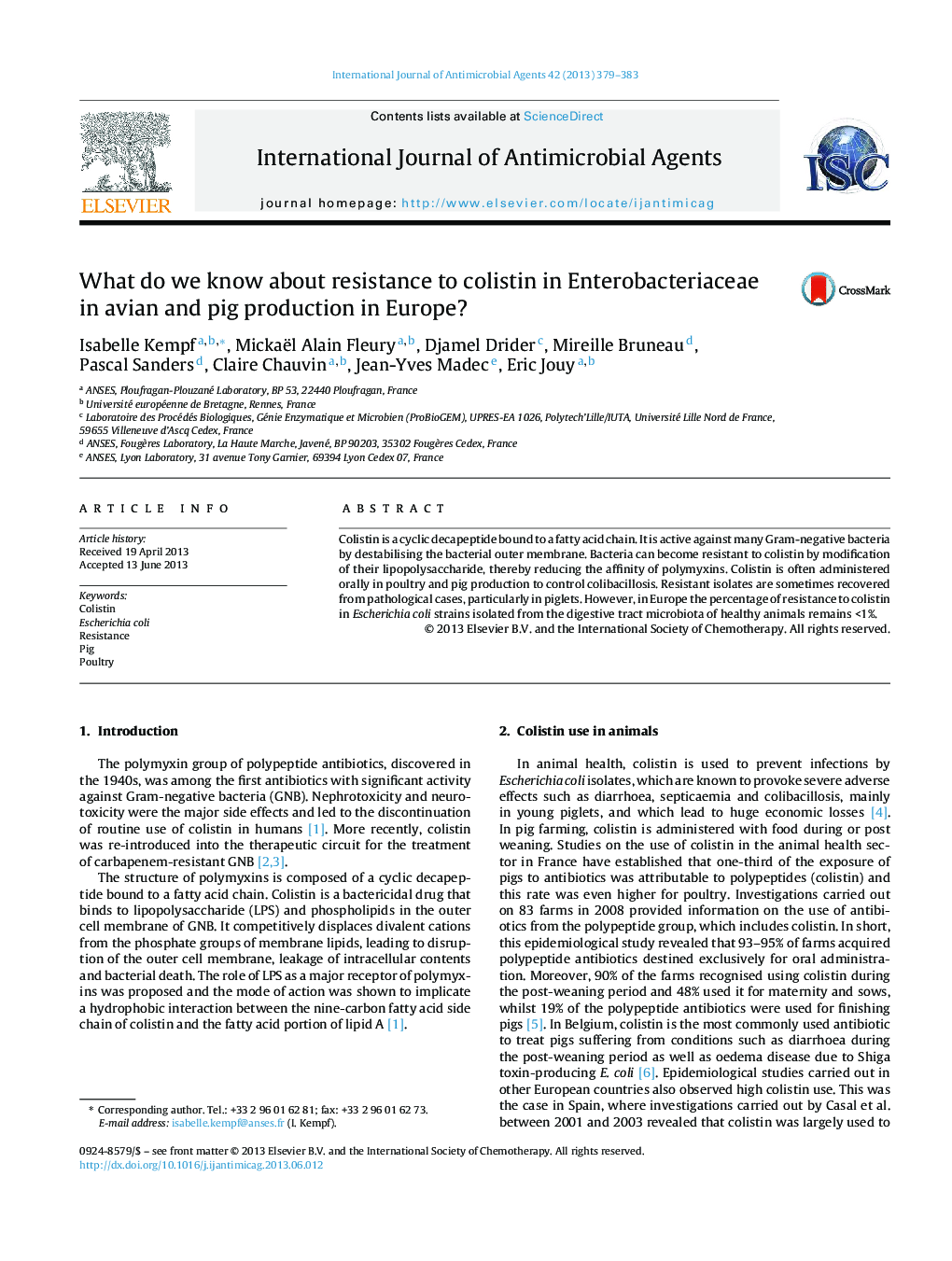| Article ID | Journal | Published Year | Pages | File Type |
|---|---|---|---|---|
| 3358918 | International Journal of Antimicrobial Agents | 2013 | 5 Pages |
Abstract
Colistin is a cyclic decapeptide bound to a fatty acid chain. It is active against many Gram-negative bacteria by destabilising the bacterial outer membrane. Bacteria can become resistant to colistin by modification of their lipopolysaccharide, thereby reducing the affinity of polymyxins. Colistin is often administered orally in poultry and pig production to control colibacillosis. Resistant isolates are sometimes recovered from pathological cases, particularly in piglets. However, in Europe the percentage of resistance to colistin in Escherichia coli strains isolated from the digestive tract microbiota of healthy animals remains <1%.
Related Topics
Life Sciences
Immunology and Microbiology
Applied Microbiology and Biotechnology
Authors
Isabelle Kempf, Mickaël Alain Fleury, Djamel Drider, Mireille Bruneau, Pascal Sanders, Claire Chauvin, Jean-Yves Madec, Eric Jouy,
